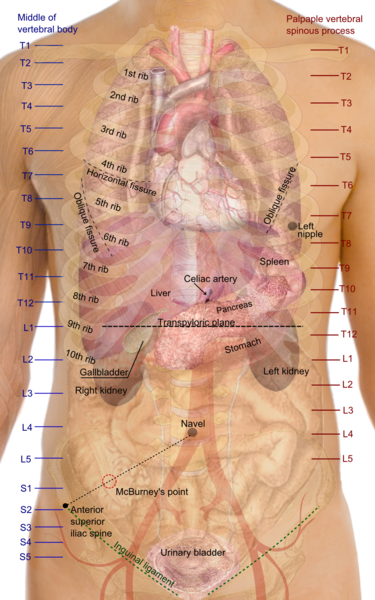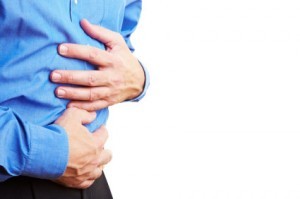Weak Stomach Feeling, Meaning, Causes, Remedies
We all use common terms to describe medical ailments and a ‘weak stomach’ is one of those terms that are widely used. It is not a medical condition as such but rather a term to describe different stomach, bowel and abdominal symptoms. What a ‘weak stomach’ may mean to one person may not necessarily apply to what another person is experiencing. As with any sensation, it is highly subjective. A weak stomach can refer to some minor acute ailment or it may be an indication of serious chronic disorder that requires intensive medical treatment.
Meaning of Weak Stomach
A weak stomach can be used to describe a number of different symptoms and medical conditions. To some it may refer to gastritis and conditions that present in a similar way, where there is indigestion, acid reflux and sometimes even upper abdominal pain after eating. For others it may refer to the lower part of the gut, namely the bowels, where there is bloating, flatulence and even diarrhea after eating. One of the common points though is that eating generally triggers or worsens symptoms.
For this reason most people tend to think that symptoms they are experiencing emanates from the stomach, but it may not always be just the stomach that is the origin of the problem. Sometimes the stomach is not involved at all. A weak stomach may also be used interchangeably with other similar terms like a sensitive stomach. This is also often associated with digestive symptoms that start after eating excessively, or with consuming spicy foods, alcoholic drinks and other foods that one is not accustomed to.
Causes of A Weak Stomach
Although it is difficult to provide a clear cut definition of what a weak stomach may describe, the general understanding of this common and loosely used term means that one or more of the following conditions are more likely to be the cause. The conditions below tend to be triggered or worsened during and after eating. It is important to note that many of these conditions may also be caused or worsened by pregnancy, psychological stress and severe illness.
Upper Digestive Tract
This is the part of the digestive tract that includes the esophagus, stomach and first half of the small intestine. Common symptoms include heartburn, nausea, vomiting, abdominal pain and/or bloating.
- Indigestion is a collection of symptoms rather than a disease. It includes a sensation of fullness, nausea, abdominal discomfort and sometimes a burning sensation, usually after eating. It is often described as feeling queasy.
- Gastritis is inflammation of the stomach that is often caused by H.pylori bacteria or the excessive use of NSAIDs. Symptoms like a burning pain in the stomach and nausea tends to worsen when hungry or after eating.
- Gastroesophageal reflux disease (GERD) is where the acidic stomach contents flow backwards up into the esophagus (food pipe) leading to nausea and heartburn among other symptoms.
- Peptic ulcer disease (PUD) is the formation of open sores in the upper gut, including the esophagus, stomach or duodenum (small intestine). Although eating can relieve the ulcer pain, it may also worsen it thereafter.
- Gallstones is where there are stones in the gallbladder or bile duct. The gallbladder is not part of the gut but plays an important role in the digestive functions. The symptoms may worsen with eating fatty meals in particular.
- Pancreatitis is inflammation of the pancreas which plays an important role in digestion although like the gallbladder it is not part of the gut. It releases strong digestive enzymes into the duodenum. Abdominal pain, nausea and vomiting after eating are some of the symptoms.
Lower Digestive Tract
This is the part of the digestive tract that includes the second half of the small intestine, the large intestine (cecum, colon and rectum) and the anus. Common symptoms include altered bowel habit (constipation or diarrhea), abdominal pain, distention, discomfort or pain when passing stool.
- Irritable bowel syndrome (IBS) is a functional bowel disorder where there is abdominal pain with diarrhea and/or constipation. The exact cause is unknown but does not appear to be related to any disease process.
- Inflammatory bowel disease (IBD) is an autoimmune condition where inflammation occurs in the gut leading to the formation of ulcers. Diarrhea, blood and/or mucus in the stool are some of the symptoms.
- Bowel infections where viruses, bacteria or protozoa infect the bowels. Most of these infections are short term and tend to cause severe diarrhea, abdominal cramps, nausea and sometimes vomiting. Gastroenteritis, enteritis, enterocolitis, colitis and proctitis are some of the terms for these types of infections.
- Food intolerance is where the ability to digest foods is impaired usually due to an enzyme deficiency. Sometimes there is a problem with absorption of specific nutrients although this is technically a malabsorption syndrome rather than a food intolerance. Lactose intolerance is one of the more common food intolerances where there is an inability to digest milk sugar (lactose).
Remedies for a Weak Stomach
The treatment for a weak stomach depends on the underlying cause. Medication and/or surgery may be necessary. However, simple dietary and lifestyle measures may also help in the management of the causative conditions. Although these measures may vary depending on the cause, general guidelines can be helpful in most instances. This includes:
- Isolating trigger or irritant foods and avoiding it as far as possible. A food diary and elimination diet can be useful in identifying problem foods and beverages.
- Eating smaller meals more frequently in a day. Instead of three square meals, rather opt for three moderate-sized meals with two small snacks in-between.
- Reducing the intake of alcohol, caffeinated drinks and spicy meals as these foods and beverages are known to irritate most upper and lower digestive tract conditions.
- Undertaking light physical activity after a meal so as to aid digestion. This may include a walk around one or two blocks, or doing household chores rather than sitting idly and lying flat after eating.
- Not eating at least 2 hours before bedtime. Lying flat can worsen some conditions but sleeping may also affect proper digestion thereby worsening symptoms.





